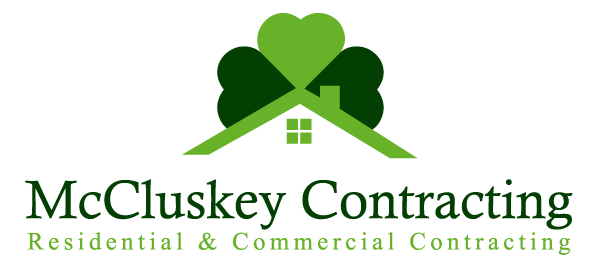Concrete Driveway Repair vs. Replacement: Making the Right Choice
New Title

As a homeowner, there are few things more crucial to the curb appeal and functionality of your property than the state of your driveway. It's the pathway to your home, bearing not just the weight of vehicles but also the weather's harshest blows.
Over time, even the most robust concrete driveways require attention, which often leads to the critical question - Should I repair or replace my driveway? This comprehensive guide will help you navigate this common homeowner dilemma.
Understanding the Importance of Driveway Maintenance
Your driveway is more than just a parking space; it's a surface that takes a daily beating, and its maintenance is key to preserving your property's value. A well-kept driveway not only improves the aesthetics of your home but also prevents further structural damage. When it comes to deciding whether to repair or replace your driveway, being informed is your best ally.
Factors to Consider Before Making a Choice
Before you dig into your wallet or schedule that demolition, let's consider the critical factors that should inform your decision-making process. These include the age and condition of your current driveway, the extent of existing damage, your home improvement budget, and the long-term plans for your property.
Age Isn't Just a Number
The age of your driveway can be a strong indicator of the required intervention. Concrete driveways older than 20 years may have endured enough wear and tear to warrant replacement, while younger driveways can typically benefit from more years with repairs.
Assessing the Damage
Minor cracks and spalling can often be maintained through simple fixes, while extensive damage, including significant sinking or upheaval, generally necessitates replacement. Detailed assessments of the type and nature of the damage can help guide your first steps.
Crunching the Numbers
Cost plays a significant role in the repair vs. replacement debate. Short-term fixes might be less expensive, but over multiple repairs, the total cost can outweigh that of a single replacement.
Long-Term Maintenance and Durability
Consider the longevity of the repair. While it may seem budget-friendly to patch up the odd crack, this Band-Aid solution might not last as long as a completely replaced driveway, potentially costing you more in the long run.
Concrete Driveway Repair: Extending the Lifespan
As you observe the inevitable cracks and damage on your once-pristine driveway, it's tempting to opt for repair over replacement. Let's delve into what driveway repair entails and whether it's a suitable option for you.
The Art of Driveway Repair
Concrete driveway repair options range from simple surface treatments to more involved procedures. Patching, resurfacing, and crack filling can all breathe new life into your driveway without the need for a complete overhaul.
The Advantages of Repair
Cost and convenience are the most significant perks of opting for a repair. In many cases, fixing a few isolated issues can be completed in a day or two without the large-scale disruption that comes with a replacement.
Knowing the Limitations
However, driveway repair is not a one-size-fits-all solution. It is best suited for minor surface damage and can, at times, be a temporary fix, as it might not address underlying soil or drainage issues that could cause future damage.
Concrete Driveway Replacement: For a Fresh Start
When the damage to your driveway is extensive or when the surfaces are simply too old to serve their purpose, replacement becomes the logical choice. Discover why a complete replacement might be the perfect long-term solution.
The Process of Replacement
Replacing your concrete driveway is a multi-step process that involves demolition, grading, and the pouring of new concrete. While it can be a significant investment, it offers a blank canvas for better performance and appearance.
The Aesthetics and Functionality
With a freshly poured driveway, you have the chance to not only address existing issues but also enhance the visual appeal and functionality of your property. Consider widening the driveway or adding decorative elements to boost curb appeal.
Long-Term Value and Resilience
Investing in a new concrete driveway promises a longer lifespan and less frequent maintenance. This improved durability can mean fewer worries and a higher return on your investment should you choose to sell your home in the future.
Decision-Making Process: Repair or Replace
So, how do you decide which path to take? This section will guide you through a decision-making process that considers your unique circumstances, guiding you toward the choice that best aligns with your needs and goals.
Your Concrete Diagnosis
Start with a thorough inspection of your driveway. Consider enlisting the help of a professional who can provide an informed assessment of the condition of your concrete and the best course of action.
The Budget Factor
Budget constraints are a reality for most homeowners. Compare the immediate costs of repair against the investment in a new driveway, factoring in the long-term cost savings of a replacement.
The Sustainability Plan
Are you looking for a quick fix or a sustainable long-term solution? Whether you are planning to sell your home or stay for years, the durability and aesthetics of your driveway should align with your future goals.
Making the Right Move With Your Concrete Driveway
In the decision between repairing or replacing your concrete driveway, there are no one-size-fits-all answers. Each homeowner's situation is unique, and it's important to weigh the costs and benefits carefully. Remember, an informed choice now can lead to a driveway that not only serves you well but also enhances the beauty and value of your home for years to come.
As you consider the options, always prioritize professional advice and work with experienced contractors. McCluskey Contracting stands ready to assist you with all your driveway needs, ensuring a smooth and durable solution for your home. Don't let the decision overwhelm you; reach out, and let's transform your driveway into a showcase of reliability and beauty.
You might also like
McCluskey Contracting Concrete Blog



